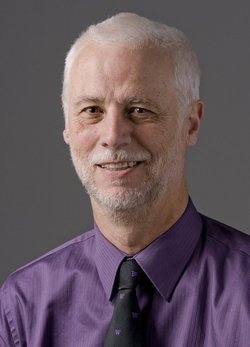 UW CSE’s Richard Ladner talks with Rachel Tompa in an Xconomy article regarding the hurdles that must be cleared to make a phone or a computer usable to the blind or deaf. He believes that technologies developed for the blind and deaf may eventually lead to broader technological advancements. This belief is not such a far-fetched idea: mobile GPS, now used by milliions, was originally developed as an aid for the blind. Ladner, along with his students, use engineering and computational tools to work on several of these hurdles—and the commercial applications could have far-ranging impact.
UW CSE’s Richard Ladner talks with Rachel Tompa in an Xconomy article regarding the hurdles that must be cleared to make a phone or a computer usable to the blind or deaf. He believes that technologies developed for the blind and deaf may eventually lead to broader technological advancements. This belief is not such a far-fetched idea: mobile GPS, now used by milliions, was originally developed as an aid for the blind. Ladner, along with his students, use engineering and computational tools to work on several of these hurdles—and the commercial applications could have far-ranging impact.
Ladner is currently working with UW TechTransfer to commercialize MobileASL, his oldest project on accessibility for the deaf. This project uses video compression technology to enable signing over video cell phones on low-bandwidth wireless networks (such as those in the U.S.). Currently, deaf people can’t reliably use video cell phones to communicate using sign language, because the videos are too choppy to be intelligible.
Read the full article here.

